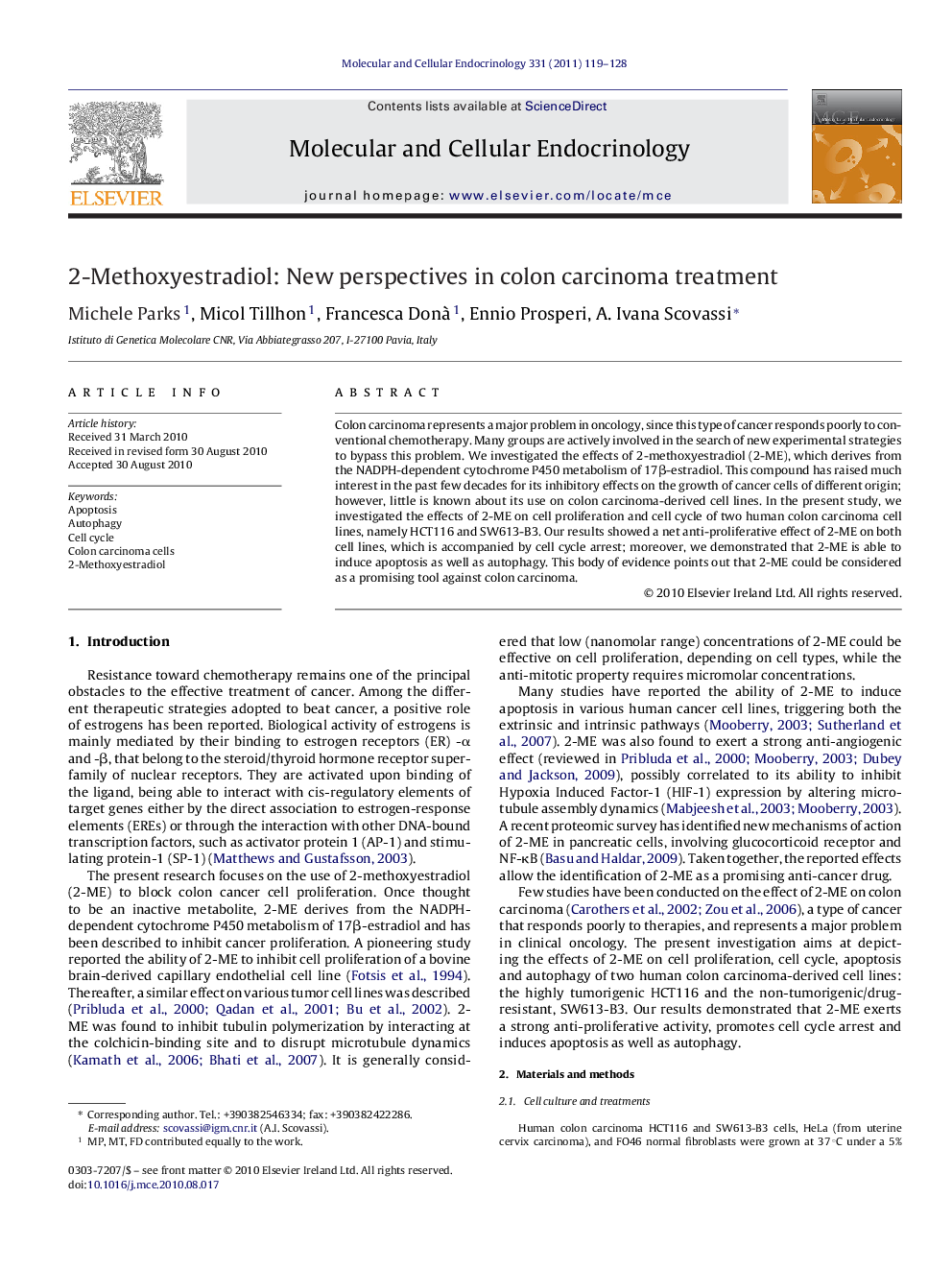| Article ID | Journal | Published Year | Pages | File Type |
|---|---|---|---|---|
| 2196699 | Molecular and Cellular Endocrinology | 2011 | 10 Pages |
Colon carcinoma represents a major problem in oncology, since this type of cancer responds poorly to conventional chemotherapy. Many groups are actively involved in the search of new experimental strategies to bypass this problem. We investigated the effects of 2-methoxyestradiol (2-ME), which derives from the NADPH-dependent cytochrome P450 metabolism of 17β-estradiol. This compound has raised much interest in the past few decades for its inhibitory effects on the growth of cancer cells of different origin; however, little is known about its use on colon carcinoma-derived cell lines. In the present study, we investigated the effects of 2-ME on cell proliferation and cell cycle of two human colon carcinoma cell lines, namely HCT116 and SW613-B3. Our results showed a net anti-proliferative effect of 2-ME on both cell lines, which is accompanied by cell cycle arrest; moreover, we demonstrated that 2-ME is able to induce apoptosis as well as autophagy. This body of evidence points out that 2-ME could be considered as a promising tool against colon carcinoma.
